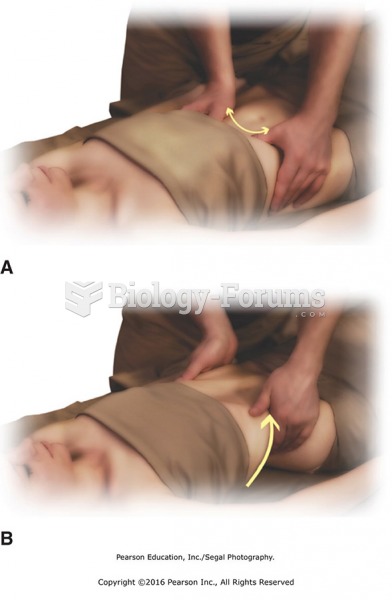This topic contains a solution. Click here to go to the answer
|
|
|
Did you know?
Drugs are in development that may cure asthma and hay fever once and for all. They target leukotrienes, which are known to cause tightening of the air passages in the lungs and increase mucus productions in nasal passages.
Did you know?
The strongest synthetic topical retinoid drug available, tazarotene, is used to treat sun-damaged skin, acne, and psoriasis.
Did you know?
Patients who cannot swallow may receive nutrition via a parenteral route—usually, a catheter is inserted through the chest into a large vein going into the heart.
Did you know?
After a vasectomy, it takes about 12 ejaculations to clear out sperm that were already beyond the blocked area.
Did you know?
People with high total cholesterol have about two times the risk for heart disease as people with ideal levels.
 Electrocardiography. (a) Electrodes are placed on the patient’s chest to record the electrical event
Electrocardiography. (a) Electrodes are placed on the patient’s chest to record the electrical event
 Upward social mobility, though welcome, can place people in a world so different from their world of ...
Upward social mobility, though welcome, can place people in a world so different from their world of ...
 Horizontal stroking of the abdomen. Place a hand on either side of the waist, fingers pointing away ...
Horizontal stroking of the abdomen. Place a hand on either side of the waist, fingers pointing away ...




